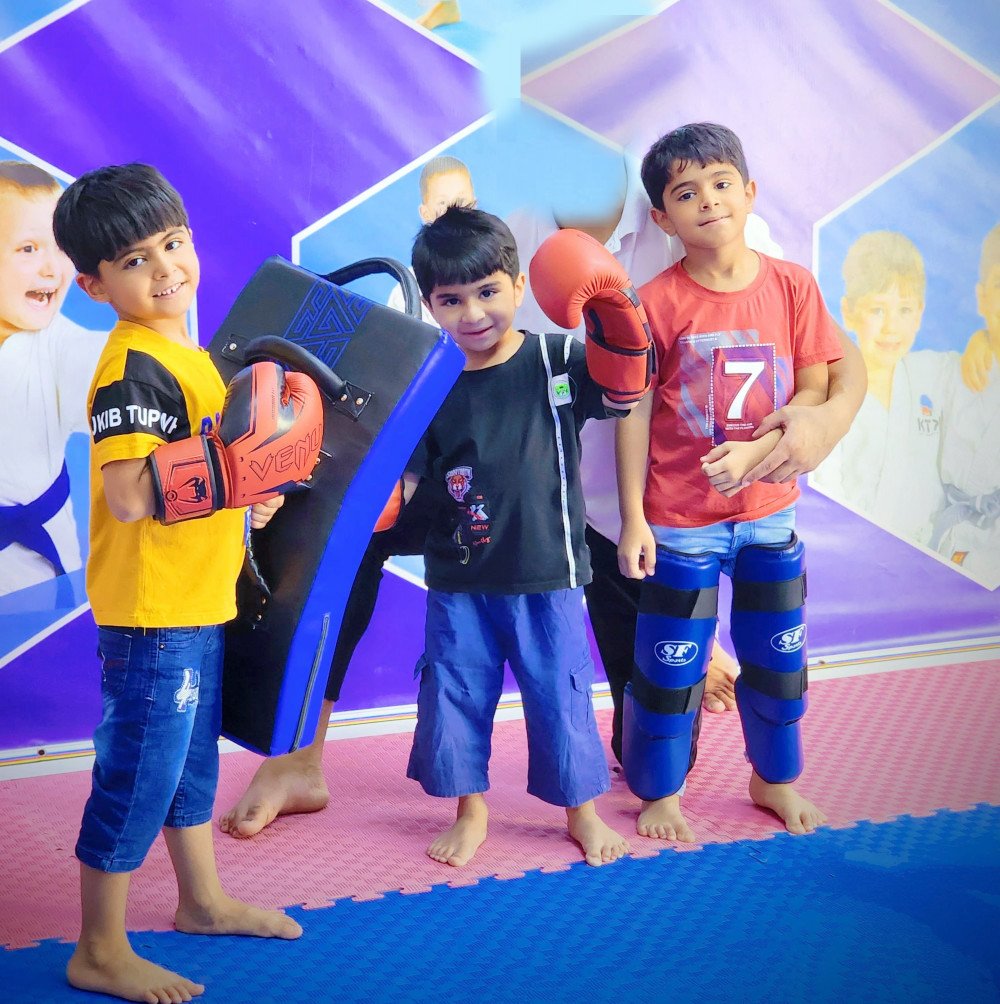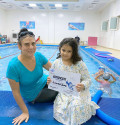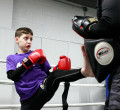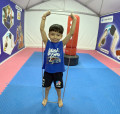
Kids learning kickboxing from a young age a comprehensive guide
2024-08-15 - Kick-Boxing
Introduction
Kickboxing is more than just a sport; it's a way of life that teaches discipline, confidence, and physical fitness. While often associated with adults, kickboxing can be incredibly beneficial for children as well. Starting kickboxing at a young age can set the foundation for a lifetime of healthy habits and positive self-esteem. This article explores the many facets of kids learning kickboxing, from the basics of the sport to the role of parents in their child’s kickboxing journey.
The Basics of Kickboxing
Kickboxing is a hybrid martial art that combines elements of boxing, karate, and Muay Thai. It involves punches, kicks, and defensive movements, making it a full-body workout that improves strength, endurance, and flexibility. For kids, kickboxing can be a fun and engaging way to stay active while learning self-defense skills.
Historical Background and Evolution
Kickboxing originated in Japan in the 1960s and has since evolved into a global sport with various styles and disciplines. Its roots can be traced back to traditional martial arts, but it has since become a mainstream fitness activity. Understanding the history of kickboxing can help kids appreciate the sport's cultural significance and evolution.
Physical Benefits
Kickboxing offers numerous physical benefits for children, making it an excellent choice for young athletes.
Improved Strength and Coordination
Kickboxing involves repetitive movements that build muscle strength and improve coordination. Children who practice kickboxing regularly develop better control over their bodies, which can translate to improved performance in other sports.
Enhanced Flexibility and Balance
The dynamic movements in kickboxing, such as high kicks and rapid footwork, enhance flexibility and balance. These skills are not only vital for kickboxing but also contribute to overall physical agility.
Mental Benefits
Beyond the physical advantages, kickboxing also offers significant mental benefits for children.
Building Discipline and Focus
Kickboxing requires focus and discipline, as children must learn and memorize various techniques. These skills carry over into other areas of life, such as schoolwork and personal responsibilities.
Boosting Confidence and Self-Esteem
As children progress in kickboxing, they gain a sense of accomplishment that boosts their confidence. Knowing they can defend themselves also provides a sense of security, contributing to overall self-esteem.
Age-Appropriate Training Methods
When introducing kids to kickboxing, it's essential to use age-appropriate training methods that make learning fun and engaging.
Fun and Engaging Drills
Incorporating games and playful drills into kickboxing training keeps children interested and motivated. Activities like pad work, shadowboxing, and obstacle courses can make learning the fundamentals of kickboxing enjoyable.
Importance of a Qualified Instructor
A qualified instructor who understands how to work with children is crucial. They should be able to tailor the training to the child’s age, skill level, and individual needs while ensuring a safe and supportive environment.
Safety Precautions for Young Kickboxers
Safety is a top priority when it comes to kids and kickboxing. Proper gear, such as gloves and mouthguards, should always be worn. Additionally, techniques should be taught in a controlled manner to minimize the risk of injury.
The Role of Parents in Kids' Kickboxing Journey
Encouragement and Support
Parents play a vital role in their child's kickboxing journey by providing encouragement and support. This involvement can boost the child's confidence and commitment to the sport.
Monitoring Progress and Safety
Parents should actively monitor their child’s progress and ensure that safety measures are being followed during training. Regular communication with the instructor can help parents stay informed about their child’s development and any areas that may need additional focus.
Kickboxing Promotes Violence
One common misconception is that kickboxing promotes violence. In reality, kickboxing teaches self-control and respect for others. It instills the importance of using skills responsibly and only in self-defense situations.
Kickboxing is Too Intense for Young Kids
Some believe that kickboxing is too intense for young children, but when taught correctly, it can be a safe and enjoyable activity. Age-appropriate training methods ensure that kids learn at their own pace without being overwhelmed.
Girls Shouldn’t Learn Kickboxing
Another myth is that kickboxing is not suitable for girls. However, kickboxing is a sport for everyone, regardless of gender. Many girls excel in kickboxing, gaining strength, confidence, and empowerment through the sport.
The Social Benefits of Kickboxing for Kids
Making New Friends
Kickboxing classes provide an opportunity for children to make new friends who share similar interests. The camaraderie built during training sessions often leads to lasting friendships.
Learning Teamwork and Sportsmanship
While kickboxing is an individual sport, it also teaches valuable lessons in teamwork and sportsmanship. Kids learn to respect their training partners and work together to improve their skills.
Kickboxing Competitions for Kids
Understanding the Competitive Aspect
For children who wish to take their kickboxing skills to the next level, competitions can be an exciting and rewarding experience. Competing allows kids to test their skills and gain a sense of achievement.
Preparing for Competitions
Preparation for competitions involves not only physical training but also mental conditioning. Kids learn the importance of staying focused, managing stress, and maintaining a positive attitude.
The Importance of Good Sportsmanship
Win or lose, good sportsmanship is a key aspect of kickboxing competitions. Children are taught to respect their opponents and to take pride in their efforts, regardless of the outcome.
Choosing the Right Kickboxing School for Kids
Factors to Consider
When choosing a kickboxing school for your child, consider factors such as the instructor's qualifications, the school's reputation, and the class size. A smaller class allows for more personalized attention, which is crucial for young learners.
.















































































































































































































































































































































































































































